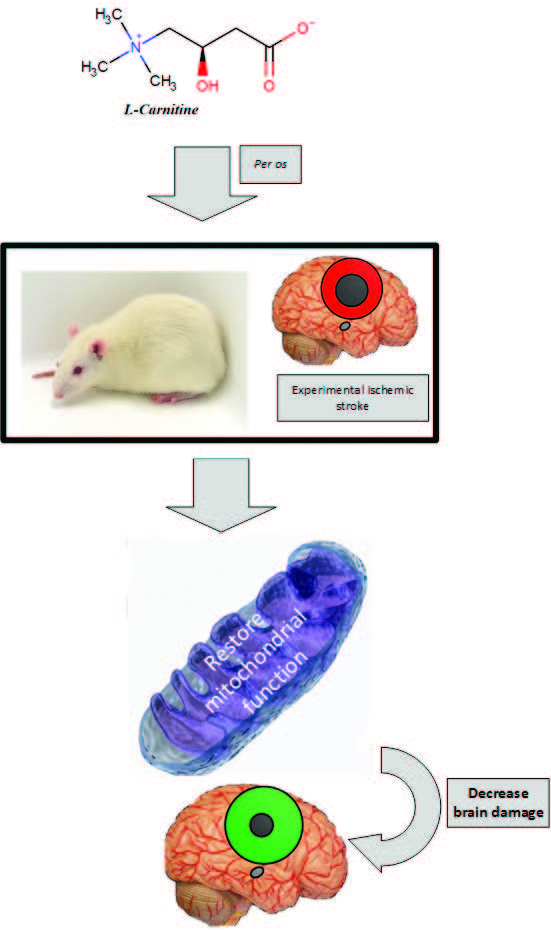Neuroprotective Effect of L-carnitine. Focus on Changing Mitochondrial Function
DOI:
https://doi.org/10.3897/rrpharmacology.6.57419Аннотация
Introduction: In this study, the neuroprotective effect of L-carnitine administered per os in a dose of 25 mg/kg – 800 mg/kg was evaluated. The effects of L-carnitine on changes in mitochondrial function were also studied.
Materials and Methods: The neuroprotective effect and mitochondrial function were evaluated in a model of permanent focal ischemia in Wistar-line rats. L-carnitine was administered to rats orally for 72 hours from the moment of modeling ischemia. On the 4th day after the ischemia simulation, the change in the respiratory function of the mitochondria, the opening time of the mitochondrial permeability transition pore, the mitochondrial membrane potential, the concentration of intracellular calcium and the size of the cerebral necrosis zone were determined in rats’ brain supernatant.
Results: As a result, it was found that the administration of L-carnitine contributed to the restoration of mitochondrial function and a decrease in the size of the brain necrosis zone. At the same time, the administration of L-carnitine in low doses (25 mg/kg – 100 mg/kg) did not have a significant effect on the change in the concentration of intracellular calcium. It should be noted that an increase in the dose of L-carnitine from 200 mg/kg to 800 mg/kg was not accompanied by a significant increase in the therapeutic effect.
Discussion: L-carnitine is one of the key biomolecules that directly affect metabolic processes. It is known that L-carnitine acts as a ”shuttle” for long-chain fatty acids and thus can affect the alteration of mitochondrial function. However, the detailed nature of the mitochondriotropic action of L-carnitine has not been yet established. This was the focus of this study, which showed that the mitochondrion-oriented effect of L-carnitine is dose-dependent and expressed in the form of restoring the respiratory function of mitochondria, restoring the mitochondrial potential and increasing the latent opening time of the mitochondrial permeability transition pore, reducing the level of intracellular calcium.
Conclusion: The study allowed us to expand our understanding of the L-carnitine neuroprotective effect and the effect of this compound on changes in mitochondrial function.
Graphical abstract:
 Русский
Русский
 English
English

